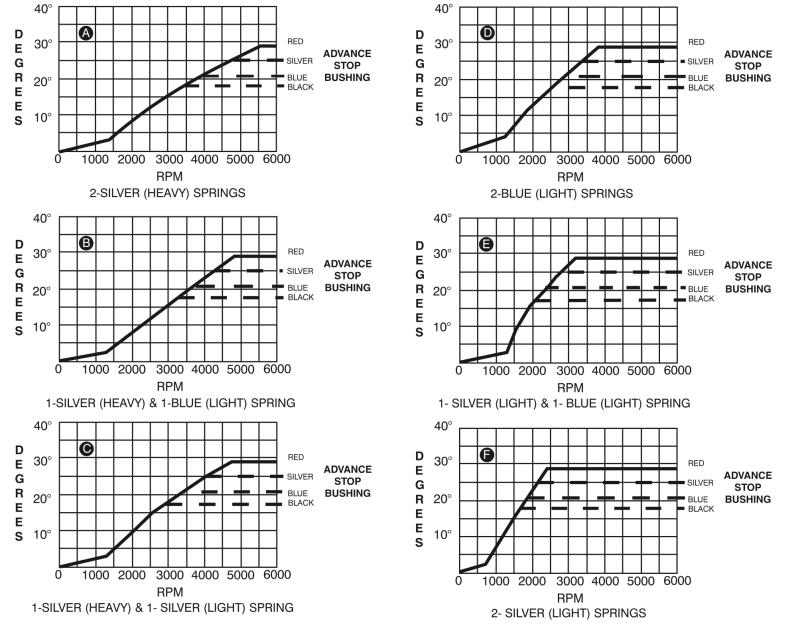Hey guys so I have been playing with timing since i have installed this new MSD 8383 in my 292. I have been experimenting with the initial timing from 12 to 16. Seems like so many different guys like different initial timing. I am also running full manifold vacuum advance. One thing i dont have my head wrapped around is how fast the distributor advance should be coming in. The attached msd charts show the different springs and their rates. I have the blue stop bushing installed which limits the dizzy advance at 21º . I also have the 2 blue springs installed. At 16º initial that puts me at 37º total. but with the vacuum advance i am not sure when it is dropping off and curious if its overlapping in the dizzy advance. If I should be getting all the advance in before 3000rpm then why on the msd chart does the different springs continue to advance way past 3000?
